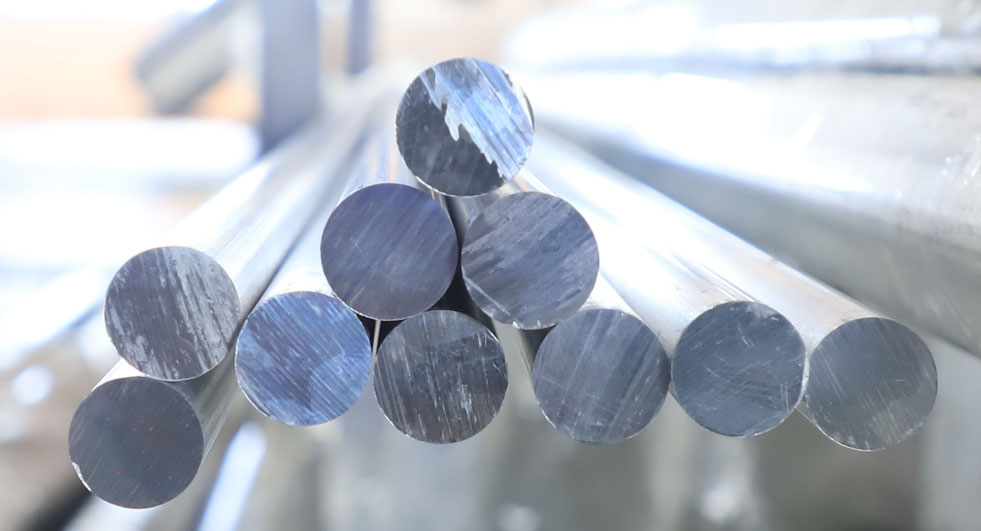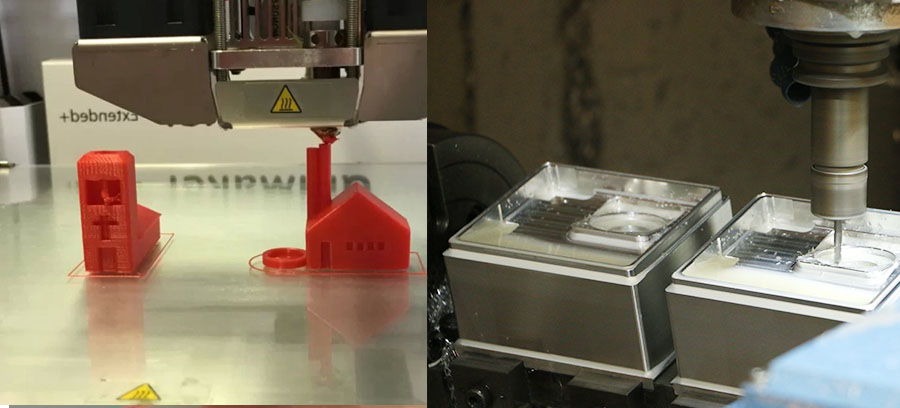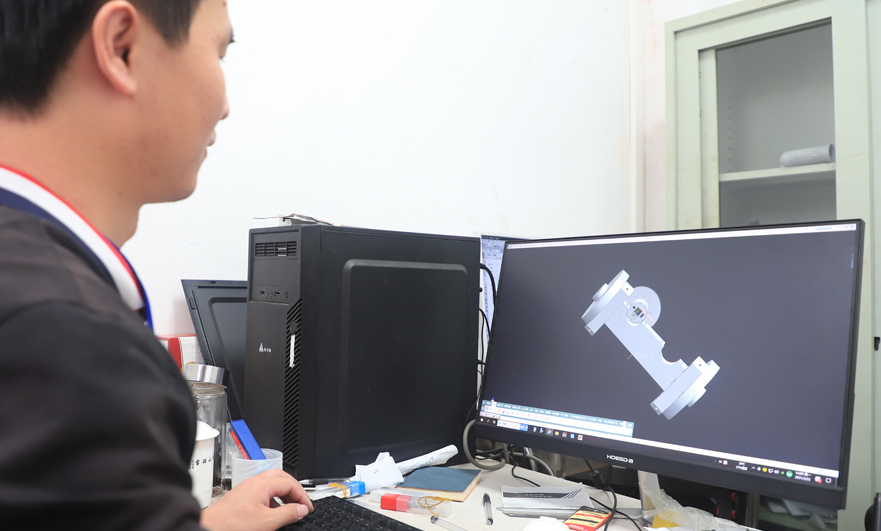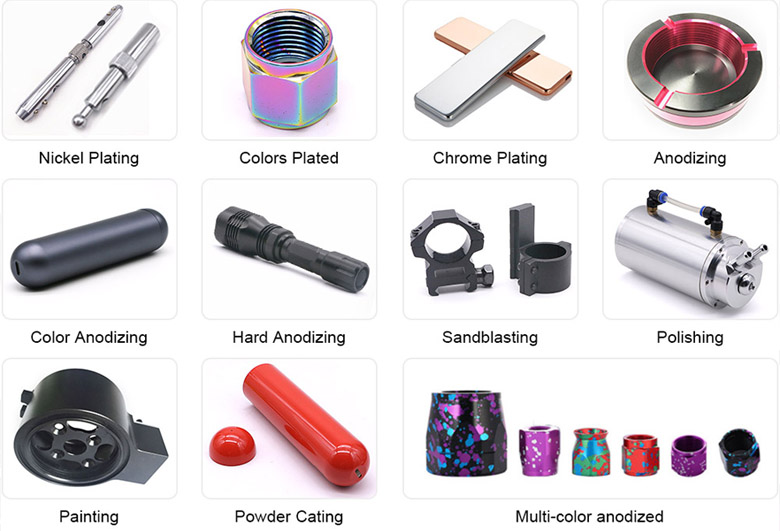15 years one-stop China custom CNC machining parts factory

Hey there I’m VMT Sam!
With 25 years of CNC machining experience we are committed to helping clients overcome 10000 complex part-processing challenges all to contribute to a better life through intelligent manufacturing. Contact us now
 132 |
Published by VMT at Oct 18 2022
132 |
Published by VMT at Oct 18 2022
The most straightforward answer: 3D printing is an additive technology, and CNC precision machining is a subtractive technology. Which one is better?
1. Differences in materials
3D printing materials mainly include liquid resin (SLA), nylon powder (SLS), metal powder (SLM), gypsum powder (full color printing), sandstone powder (full color printing), wire (DFM), sheet (LOM) and many more. Liquid resins, nylon powders and metal powders account for the vast majority of the market for industrial 3D printing.
The materials used in CNC precision machining are all pieces of plates, that is, plate-like materials. By measuring the length, width, height and wear of the parts, the corresponding size plates are cut for CNC machining. VMT is a CNC machining factory with 13 years of experience, with complete equipment, CNC turning/milling/grinding/drilling/machining, welcome partners who have parts machining needs to call for quotation.
There are more choices of CNC machining materials than 3D printing. General hardware and plastic sheets can be CNC machined, and the density of molded parts is better than 3D printing.

2. Differences in CNC parts due to forming principles
Since 3D printing is a kind of additive manufacturing, its principle is to cut the model into N layers/N multi-points, and then pile them up layer by layer/bit by bit in sequence, just like building blocks. Therefore, 3D printing can effectively CNC process parts with complex structures, such as hollow parts, while CNC is difficult to realize the machining of hollow parts.
CNC machining is subtractive manufacturing. Through various tools running at high speed, the required parts are cut according to the programmed tool path. Therefore, CNC precision machining can only process rounded corners with a certain radian, but cannot directly process inner right angles, which must be realized by wire cutting/sparking and other processes. Outside right angle CNC machining is no problem. Therefore, parts with inner right angles can be considered for 3D printing. There is also the surface. If the surface area of ??the part is relatively large, it is recommended to choose 3D printing. CNC machining the surface is time-consuming, and if the programming and operator experience is not enough, it is easy to leave obvious lines on the part.
No wonder some people say that 3D printing is to use cake flour to pile up a cake, and CNC machining is to cut a big cake into small cakes. It is really simple and easy to understand.

3. Differences in operating software
Most of the slicing software for 3D printing is easy to operate. Even a layman can skillfully operate the slicing software in a day or two with professional guidance. Because the slicing software is currently very simple to optimize, and supports can be automatically generated, which is why 3D printing can be popularized to individual users.
CNC programming software is much more complicated and requires professionals to operate it. People with zero basic knowledge generally need to learn about half a year. In addition, a CNC operator is required to operate the CNC machine. The more commonly used ones are UG, MASTERCAM, CIMATRON, and domestic Jingdiao. Learning these software is still difficult.
Because the programming is very complicated, a component can have many kinds of CNC machining solutions, while 3D printing only has a small impact on the CNC machining time and consumables because of the placement position, which is relatively objective.

4. Differences in post-machining
There are not many post-machining options for 3D printed parts, generally grinding, oil spraying, deburring, dyeing, etc.
There are various post-machining options for CNC machined parts, in addition to grinding, oil injection, deburring, electroplating, silk screen printing, pad printing, metal oxidation, laser engraving, sandblasting and so on.

There is a sequence of hearings, and there are specialties in the art industry. CNC machining and 3D printing each have their own advantages and disadvantages. Choosing the right CNC machining process plays a vital role in your CNC machining project.
Ready To Start Your Next Project?
Get Instant Quote

Request a Free Quote
Send us a message if you have any questions or request a quote. We will get back to you ASAP!